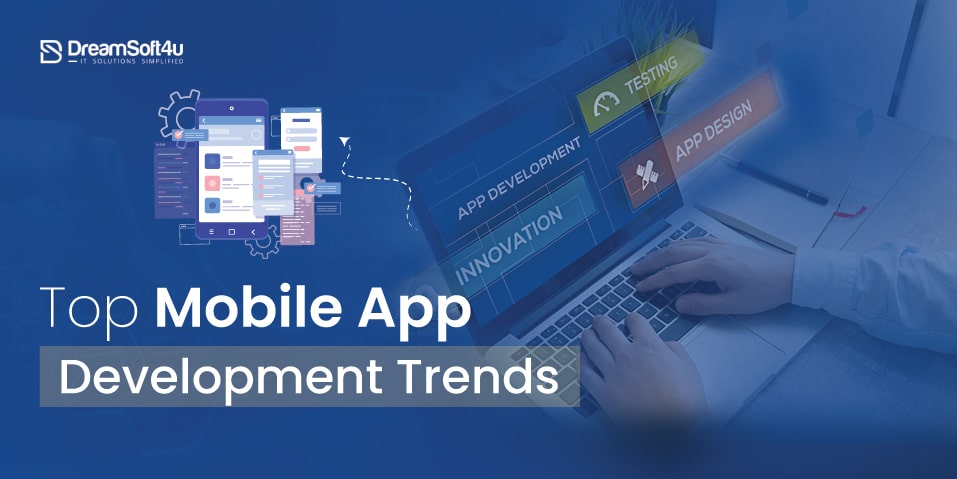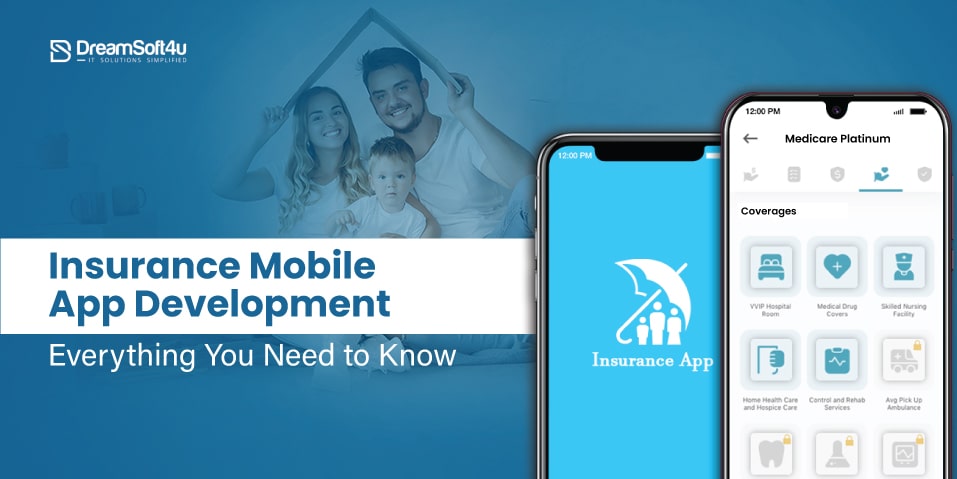Whether you are a small startup or a big company, building a strong customer relationship is the key to success for your business. From generating leads and increasing revenue to maximizing sales, all it depends on your custom interactions. However, this cutthroat competition makes it challenging for companies to build strong connections with customers, especially when customers can easily get distracted. This is where a Custom CRM Solution comes in as the ultimate game-changer. It offers marketing automation, advanced targeting, streamlined operations, and tracking activities—all in one place, helping businesses stay ahead.
As per the recent stats, the global CRM market is expected to reach $181.90 billion by 2030 with a CAGR of 10.4%. It clearly shows how fast businesses are investing in CRM solutions for their business growth.
Despite the endless benefits of using CRM software, there are so many businesses that do not understand that one-size-fits-all is not suitable and the need for custom CRM is crucial.
That is why, In this guide, we will cover everything about custom CRM software, its types, must-have features, benefits, roadmap to build a custom CRM, and estimated cost of development.
By the end of this blog, you will know precisely why custom CRM software is essential for your business, its benefits, and how you can build it. Let us dive in!
Table of Contents
ToggleCustom CRM Software Development: Overview
Customer Relationship Management is a software. It helps businesses keep track of their customers and nurture leads. It is like a digital assistant that organizes customer information, manages relationships, improves sales, and provides better customer support.
This software stores essential details about customers, such as their contact information, past conversations, preferences, and purchase history. This allows businesses to create personalized experiences. And send targeted promotions to build stronger relationships with customers.
CRM software does not always fit every size and type of business. That is why the demand for custom CRM software increases. It is specifically designed to meet a business’ needs.
Businesses that leverage custom CRM software. They often see significant improvements in lead generation, sales, and customer retention.
CRM Market Latest Statistics
Here are some recent stats about CRM software:
- 92% of businesses say CRM software has been crucial in helping them hit their revenue goals.
- 65% of companies start using a CRM system within their first five years of business.
- With CRM software, companies can see a 300% increase in conversion rates.
- After using CRM, 74% of companies report much stronger relationships with their customers.
- 32% of companies using CRM software come from the service industry.
- 91% of companies with more than 10 employees are utilizing CRM.
What are the Different Types of CRM Software?
There are four types of CRM software:
1. Operational CRM Software
This type of CRM software focuses on automating and improving everyday operations, such as sales, marketing, and customer service. It helps businesses streamline operations. And save time by automating repetitive tasks.
2. Strategic CRM Software
Strategic CRM is all about building long-term relationships with customers. It gives teams access to essential customer data. Plus, it helps them make informed decisions to keep customers happy and loyal over time.
3. Analytical CRM Software
This CRM is designed to analyze customer data and behavior. It helps businesses understand what their customers want. By looking at patterns in the data. And allowing them to make smarter decisions for future engagement.
4. Collaborative CRM Software
A collaborative CRM helps teams share customer information and work together across different channels, such as email, social media, and phone calls. It keeps all communication in one place so everyone is on the same page when interacting with customers.
Must-Have Features for Your Custom CRM Software Development
Building a custom CRM can help businesses grow as per their business needs. Here are some must-have features to consider for your custom CRM:
1. Email Integration
This feature allows your CRM to connect with your email account. This is so you can track customer emails, manage communication, and easily share information across your team for better collaboration.
2. Sales Pipeline Management
This feature helps you organize and visualize your sales process. Showing how leads move through different stages. Which are initial contact, negotiation, closed sale, etc. It helps you manage opportunities effectively and prioritize tasks to increase sales.
3. Analytics and Reporting
Your custom CRM can generate reports and data analysis to show how your business is performing. For example, it tracks sales performance, customer behaviour, and marketing effectiveness. And help you make informed decisions for improvement.
4. Customer Support
This feature helps you manage customer inquiries, complaints, and feedback. It tracks customer issues and ensures they are addressed quickly, which improves customer satisfaction and loyalty.
5. Security and Compliance
CRM helps you follow the necessary rules and security measures to protect customer data. It prevents unauthorized access and ensures data encryption. It also helps your business comply with regulations like GDPR or HIPAA.
6. Marketing Automation
Another advanced feature of CRM is marketing automation. It can automate your marketing tasks, such as sending emails, posting on social media, and nurturing leads. It saves time and makes sure marketing messages reach customers at the right time without manual effort.
7. Mobility
CRM can also be accessed on mobile devices. It helps your team stay productive and connected when they are not at the office, which makes customer data available on the go.
8. Scalability
Your CRM should be scalable to meet business needs as your business expands. Your CRM can handle more customers, users, and data without losing performance. This ensures your CRM remains useful as your company grows.
Step-by-Step Process for Custom CRM Software Development

Here is the clear roadmap for building custom CRM software for your business:
Step 1: Defining Clear Objectives and Ideation
First, decide what you want your CRM to do. This means you should figure out your business needs. Such as improving customer service, managing sales better, or automating tasks. By setting clear goals. You make sure the CRM will be functional and focused on solving your specific problems so that you can focus on what truly matters and utilize the software to achieve desired goals.
Step 2: Hire an Experienced CRM Software Development Company
Once you have a clear idea of what you want, then it is time to look for professionals who can help you build custom CRM software for your business. An experienced software development services provider has the required skills, experience, and resources, which they use to create custom CRM software that matches your business needs. Plus, they will navigate challenges, suggest the best tech, and make sure your CRM is built to last. So, it is better to let the professionals create a CRM specially designed to meet your unique business needs.
Step 3: CRM Development and Testing
After finding a reliable company, start building a custom CRM for your business. This stage is where your ideas come to life, adding required features and developers fine-tuning everything to meet your goals. They also test it regularly to find and fix any issues. This step ensures that the CRM works correctly. Meets your expectations. And it is easy for your team to use, so everything runs smoothly.
Step 4: Deployment and Team Training
Once the CRM is launched, data from your old systems is moved to the new CRM. Training is essential to make sure your team knows how to use CRM effectively. So that there are no disruptions to your business.
Step 5: Security and Compliance Integration
Make sure your CRM keeps customer data safe and follows legal rules like privacy laws. This step involves adding features. Such as encryption and secure logins and making sure the system follows regulations. It is essential to prevent data breaches and avoid legal issues, which keeps both your company and customers protected.
Step 6: Ongoing Support and Maintenance
After the CRM is in use, it needs regular updates and support to stay secure and work well. This includes fixing bugs, adding new features, and ensuring the system stays updated with changing regulations. Ongoing support helps keep everything running smoothly. And ensures your CRM grows with your business.
Things to Consider Before Building Custom CRM Software
Here are some key things to consider before building custom CRM software:
Cloud-based CRM
More businesses are choosing cloud-based CRMs. Because they are affordable, reliable, and highly flexible. With cloud storage, your data is kept in one secure location and accessible from any device, which makes collaboration seamless. Plus, you can quickly scale and add new features as your business grows.
User-Interface
A well-designed CRM Software UI/UX Design interface ensures your team can navigate and use the CRM effortlessly. A clean, simple layout improves productivity and reduces the learning curve.
Choosing the Right Team
Make sure to partner with an experienced CRM development services provider. Your team should understand your business needs and have the technical expertise to build a system tailored to your operations.
Integration with Internal Business Software
Your CRM should work smoothly with your existing tools, whether they are communication platforms, marketing automation tools, or customer support systems. While integrating these solutions helps streamline operations and manage customer data more effectively. A CRM with extensive AI integration capabilities ensures a more comprehensive business solution.
Benefits of Building Custom CRM Software

Here are some significant benefits of building a custom CRM software:
Customers’ Information Centralization
A custom CRM stores all customer details, such as names, contact info, purchase history, and interactions, in one place. This makes it easy for your team to find and use customer data without searching through multiple files or systems. Everyone stays updated, leading to smoother communication and better service.
Better Customer Relationships
With a CRM, businesses can personalize their communication based on customer preferences and history. Automated reminders ensure no customer follow-ups are missed. Which helps build trust and long-term relationships. Happy customers are more likely to return and recommend your business.
Streamlined Marketing Channels
A CRM helps businesses target the right audience with personalized campaigns. By analyzing customer behaviour, companies can send relevant offers, emails, and ads, which makes their marketing more effective. Automation also saves time by handling repetitive marketing tasks.
Data-Backed Decision Making
A CRM collects and organizes data. It provides insights into customer trends, sales performance, and marketing effectiveness. So that businesses can make data-driven decisions and adjust strategies. And find new growth opportunities.
Efficient Sales Processes
A CRM tracks potential customers, manages follow-ups, and helps sales teams close deals faster. It also predicts future sales trends. So businesses can plan better and meet targets more easily. The system ensures no sales opportunity is missed, which increases revenue and efficiency.
Some Common Challenges In Building Custom CRM Software
Here are some key challenges that businesses face while using CRM:
Unclear Business Goals
If you are not clear about why you need a CRM. It will be hard to decide which features to include. A CRM without a clear purpose may not meet your business needs, which makes it ineffective. Before starting, define your goals and how the CRM will help achieve them.
Low Budget
Not planning your budget correctly can lead to delays, lack of resources, or low-quality software. Consider all costs, including development, integration, training, and maintenance, which helps avoid unexpected expenses and ensures a smooth process.
Integration Issues
Your CRM needs to work well with existing tools, such as email, marketing, and customer support software. If integration is not done right, data migration problems and system compatibility issues can arise. Testing the CRM with your existing systems during development can prevent these challenges.
Tracking CRM Performance
Measuring how well your CRM is working can be tricky without clear success indicators. If progress is not tracked correctly, some employees may resist using the new system. Focus on key factors like speed, security, analytics, and ease of integration to evaluate performance effectively.
Custom CRM Software vs Market-Ready Software
Here is the key difference between custom CRM and Market ready CRM:
| Custom CRM Software | Market-Ready CRM |
| It is specifically designed to meet your unique business needs | It is generic software and can be used by businesses of all sizes |
| It offers high customization | It offers limited customization |
| It is more expensive than market-ready because of its customization, features, time, and hiring of developers | It is a cost-effective option because of the standard features it offers |
| You need to train a customer support team to resolve the issues | You can use the available support if any problems arise |
| No free trial is available | A free trial is available, and you can switch to premium features as well |
How Much Does Custom CRM Software Development Cost?
When it comes to building custom CRM software for your business. The average cost ranges between $30,000 and $300,000. However, the actual costs will vary based on several factors, such as technology, team size, software features, integrations, and more.
How Can DreamSoft4U Can Help In Building Custom CRM Software?
DreamSoft4U is the most reliable and experienced CRM software development company. With over 20 years of experience, cutting-edge technologies, and a highly skilled team of developers, they can offer you excellent CRM solutions for your business. Connect with our experts and get a cost-effective CRM solution today!
Planning to build a custom CRM for your business?
We’ve a team of skilled professionals who can turn your vision into reality
Conclusion
Custom CRM Software Development can help businesses manage customer relationships, boost sales, and streamline operations. Instead of using market-ready generic software, a custom CRM can help you achieve your unique needs without wasting time, effort, and money on something that can not bring results. However, there are several things to consider before building a custom CRM software. We hope this guide helps you understand everything about custom CRM, its types, benefits, and how you can create a custom CRM for your business. Now, it is your turn to hire an experienced software development company and let the professionals make a custom CRM for your business at an affordable price.
FAQs
Q1. What Are Some of the Best CRM Software Options Available?
Some of the top CRM solutions include:
- HubSpot CRM: A user-friendly option with free and paid plans.
- Salesforce: A powerful and highly customizable enterprise CRM.
- Zoho CRM: Affordable with AI-powered automation.
- Pipedrive: Designed for sales teams to streamline pipelines.
- Microsoft Dynamics 365: Great for businesses already using Microsoft products.
Q2. How Much Time Does It Take to Develop a CRM?
Developing a custom CRM typically takes 3 to 10 months, depending on complexity. Larger projects with advanced features may take over a year.
Q3. Which Tech Stack Is Best for CRM Development?
The ideal tech stack depends on your needs, but popular choices include:
- Frontend: React, Angular, or Vue.js
- Backend: Node.js, Django, or Ruby on Rails
- Database: PostgreSQL, MongoDB, or MySQL
- Cloud & Hosting: AWS, Google Cloud, or Azure
Q4. What Are the Key Features of a Custom CRM?
A custom CRM should include:
- Contact & Lead Management
- Sales Pipeline Tracking
- Automation Tools
- Reporting & Analytics
- Integration Capabilities
Q5. Why Choose a Custom CRM Over a Pre-Built Solution?
A custom CRM provides personalized solutions tailored to your business needs. It ensures better workflow alignment and user experience. It also offers better integration with existing tools, reducing compatibility issues. While the upfront cost may be higher, a custom CRM eliminates unnecessary features and recurring licensing fees. Which makes it more cost-effective in the long run.



















